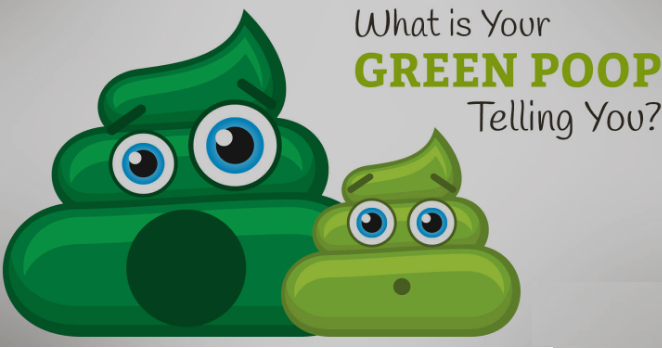Green Poop Meaning: Causes, Concerns, and What You Should Know

Green Poop Meaning: Causes, Concerns, and What You Should Know
Have you ever been startled by the sight of green poop in the toilet? While it might seem unusual and concerning, green stool can be caused by various factors and isn’t always a cause for alarm. In this comprehensive guide, we’ll delve into the reasons behind green poop, when you should be concerned, and whether it indicates a potential infection or liver issue.
Also Read:- Optimizing Healthcare: A Comprehensive Guide to HCA Nursing and Agency Services Across Australia
Understanding the Green Poop Phenomenon
Before you jump to conclusions about the meaning of green poop, it’s crucial to understand the various factors that can contribute to this unusual coloration. Stool color is primarily influenced by the presence of bile, a digestive fluid produced by the liver. Bile is typically yellow-green in color and plays a vital role in the breakdown of fats in your digestive system. However, as your food progresses through the digestive tract, bile undergoes changes that can alter the color of your stool.
Common Causes of Green Poop
- Dietary Factors: One of the most common reasons for green poop is your diet. Consuming large quantities of green leafy vegetables, such as spinach, kale, or broccoli, can result in green-colored stool. Additionally, foods that contain artificial green dyes or colorings can have a similar effect.
- Rapid Transit Time: Sometimes, when food moves through your digestive system too quickly, it doesn’t have enough time to undergo the usual color changes. This can lead to greenish stool.
- Bile Output: Changes in the amount of bile your body produces or how it’s absorbed in the intestines can also impact the color of your poop. Excess bile in the stool can make it appear green.
When Should You Be Concerned?
While green poop is often harmless and temporary, there are instances where it could signal an underlying issue:
- Infection: Green stool, along with diarrhea and other gastrointestinal symptoms, may indicate an infection. Infections like giardiasis or salmonella can cause changes in stool color.
- Medications: Some medications, especially those containing iron, can lead to greenish or dark-colored stool as a side effect.
- Gallbladder Problems: If your gallbladder isn’t functioning correctly, it can impact the flow of bile into your digestive system, potentially leading to green stool.
- Malabsorption Issues: Conditions that affect nutrient absorption in the intestines, such as celiac disease or Crohn’s disease, may lead to changes in stool color, including greenish hues.
When to Seek Medical Attention
If you notice green poop accompanied by persistent symptoms like abdominal pain, diarrhea, fever, or blood in your stool, it’s crucial to consult a healthcare professional. These symptoms could indicate an underlying medical condition that requires attention.
FAQs:
1. Does green poop mean infection?
Green poop can sometimes be a sign of infection, especially if accompanied by other symptoms like diarrhea, stomach cramps, or fever. However, it’s essential to consult a healthcare professional for a proper diagnosis and treatment.
2. Does green poop mean bad liver?
Green stool does not necessarily indicate a liver problem. The color of your poop can be influenced by various factors, and a green hue alone is not a definitive sign of liver issues. If you’re concerned about your liver health, consult a doctor for a thorough evaluation.
Conclusion
In most cases, green poop is a harmless and temporary occurrence caused by dietary factors or rapid transit through the digestive system. However, it’s essential to pay attention to any accompanying symptoms and seek medical advice if you have concerns. While green stool doesn’t necessarily mean infection or a bad liver, it’s always better to be cautious and consult a healthcare provider for a proper evaluation and peace of mind.








